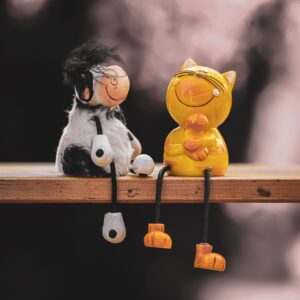I saw a plaintive tweet the other day, in which the person expressed the fervent desire to live in somewhat less historic times. I could definitely relate to that. Sadly, we don’t get to choose the times we live in. All we can do is choose how we react to what is happening around us.
For many of us, even living as we do in the relative safety of North America, world events can trigger old wounds and fears – whether our own or those of our families. Generational trauma is a very real thing, and it will go better with all of us if we recognise and respect that unfortunate fact. Sometimes we find ourselves reacting with a vehemence and level of emotion that surprises us, let alone other people. It can be distressing, to the point of putting a strain on our relationships – these are the times that tear families and communities apart, unless we take conscious steps to avoid that.
So how can we talk with people with whom we strongly disagree, without losing sight of each other’s humanity? How do we stay in community with people who hold views we think are wrong, damaging or even evil?
The first step, as in any other problematic situation, is to recognise what is going on – to try not to be emotionally blindsided. That is, of course, easier said than done, and sometimes it is best if we can point that out, gently, to one another. It requires a lot of trust not to become defensive at this point, but again, if we can do that, we have made a huge step towards healing that trauma.
The next step, as I learned from the wonderful organisation Resetting The Table, is to listen – truly listen. What is the other person really saying? Can you zero in on the heart of the matter, and can you reflect it back to them? You don’t have to agree, just to hear. “I hear that you are very concerned about the direction our country appears to be going, and you are afraid that it will have a bad effect on you and the people you love.”
There is nothing so humanising as knowing that you have truly been heard by someone – even if they don’t agree with you. I know – I have experienced it. I hope many other people in our communities do as well. That is one way we can survive these interesting times – together.

